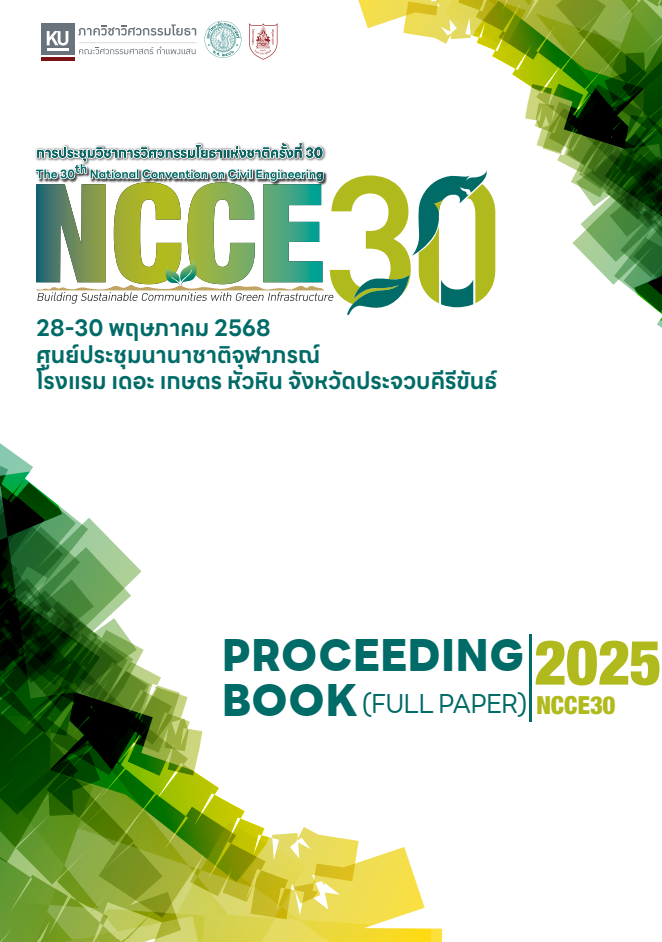Integration of supervised and reinforcement learning for train wheel wear management
คำสำคัญ:
Supervised Learning, Reinforcement Learning, Train wheel wear, Predictive Maintenance, Conditional Monitoringบทคัดย่อ
Train wheel wear significantly impacts railway operations in terms of safety, passenger comfort, maintenance, reliability, and operational efficiency. This study focuses on managing train wheel wear consisting of changes in tread wear, flange height, and flange thickness. Regular wheel profile measurements are essential but are often limited by constraints such as heavy traffic, budget restrictions, time, and remote asset locations. These limitations challenge traditional maintenance practices that rely on frequent data collection. To address these issues, this study introduces an approach integrating supervised and reinforcement learning for predictive maintenance. The supervised learning model, developed from validated simulations, predicts wheel wear progression, while reinforcement learning enhances maintenance decision-making using operational data. This approach minimizes reliance on frequent measurements while optimizing maintenance schedules. The study fine-tunes various machine learning techniques to achieve the best performance, ensuring timely interventions to prevent wheel defects. By combining these methodologies, the proposed approach improves wear prediction accuracy (R2 > 0.8), and maintenance effectiveness (most of defects can be eliminated), and mitigates unexpected failures. It offers practical solutions to industry challenges, including system complexity, limited data, and cost-effectiveness. This pioneering work demonstrates the first integration of supervised and reinforcement learning for train wheel wear management. It delivers significant benefits, including reduced maintenance costs, improved efficiency, minimized defects, shorter inspection times, enhanced passenger comfort, and increased safety, contributing to the advancement of railway asset management.
ดาวน์โหลด
เผยแพร่แล้ว
วิธีการอ้างอิง
ฉบับ
บท
การอนุญาต
ลิขสิทธิ์ (c) 2025 Engineering Institute of Thailand

This work is licensed under a Creative Commons Attribution-NonCommercial-NoDerivatives 4.0 International License.
บทความที่ได้รับคัดเลือกนำเสนอในการประชุม NCCE ถือเป็นลิขสิทธิ์ของวิศวกรรมสถานแห่งประเทศไทย ในพระบรมราชูปถัมภ์ (วสท.) (Engineering Institute of Thailand)


